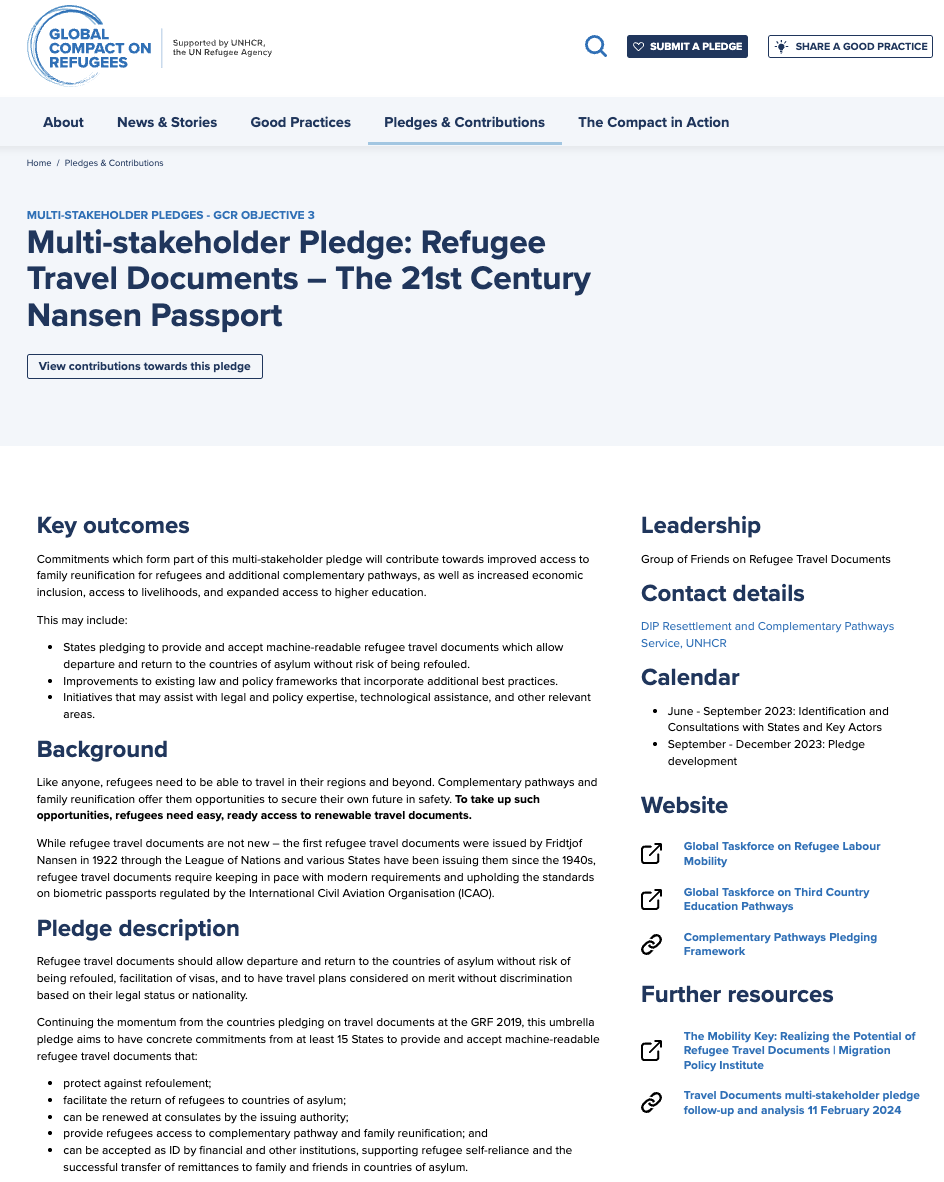
Multi-Stakeholder Pledge: Refugee Travel Documents – The 21st Century Nansen Passport
Author(s)
Abstract
Background
Like anyone, refugees need to be able to travel in their regions and beyond. Complementary pathways and family reunification offer them opportunities to secure their own future in safety. To take up such opportunities, refugees need easy, ready access to renewable travel documents.
While refugee travel documents are not new – the first refugee travel documents were issued by Fridtjof Nansen in 1922 through the League of Nations and various States have been issuing them since the 1940s, refugee travel documents require keeping in pace with modern requirements and upholding the standards on biometric passports regulated by the International Civil Aviation Organisation (ICAO).
Pledge description
Refugee travel documents should allow departure and return to the countries of asylum without risk of being refouled, facilitation of visas, and to have travel plans considered on merit without discrimination based on their legal status or nationality.
Continuing the momentum from the countries pledging on travel documents at the GRF 2019, this umbrella pledge aims to have concrete commitments from at least 15 States to provide and accept machine-readable refugee travel documents that:
- protect against refoulement;
- facilitate the return of refugees to countries of asylum;
- can be renewed at consulates by the issuing authority;
- provide refugees access to complementary pathway and family reunification; and
can be accepted as ID by financial and other institutions, supporting refugee self-reliance and the successful transfer of remittances to family and friends in countries of asylum
For States already issuing and accepting machine readable travel documents, the pledge would also cover improvements to law and policy frameworks that incorporate additional best practices (e.g. increased validity length periods). For non-State actors, this pledge extends to initiatives that may assist with legal and policy expertise, technological assistance, and other relevant areas.
